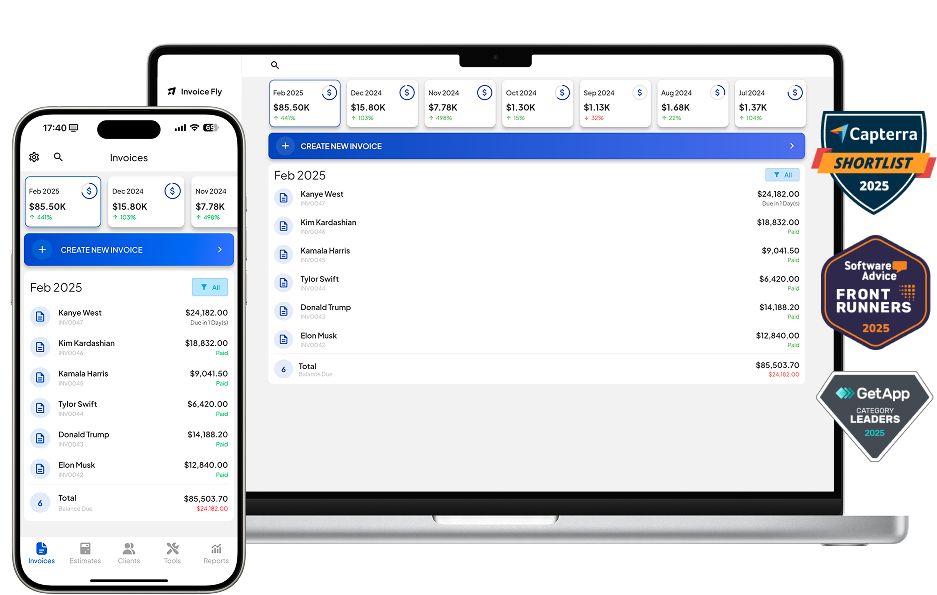- Home
- »
- Glossary Of Terms
- »
- Collection Letter
Collection Letter Definition
Collection Letter
A collection letter is a formal piece of business communication sent to a customer or client to request payment for a past due invoice or outstanding debt. It serves as both a reminder and a documented demand for payment, and it plays a crucial role in the accounts receivable process. Collection letters can range from polite payment reminders to final notice letters before legal action, depending on the stage of debt recovery.
Why Collection Letters Matter
- Prompt payment: Helps accelerate cash flow and reduce Days Sales Outstanding (DSO).
- Legal record: Provides a paper trail that can be used if the matter escalates to a law firm or court.
- Customer relationship: When worded professionally, it preserves goodwill while encouraging payment.
- Compliance: Properly drafted letters follow debt collection laws such as the Fair Debt Collection Practices Act (FDCPA) in the U.S.
Common Components of an Effective Collection Letter
- Clear debtor and creditor information – Names, addresses, and contact details.
- Invoice details – Invoice number, date, and original amount due.
- Outstanding balance – Including any applicable interest or late fees.
- Due date – Clear deadline for payment.
- Payment options – Methods and instructions for remitting payment.
- Consequences of non-payment – Next steps, which may include referral to a collection agency, legal action, or reporting to credit bureaus.
Stages of a Collection Letter Sequence
- First notice (friendly reminder): Sent shortly after the due date; polite tone.
- Second notice (firm request): Indicates urgency and outlines possible late fees.
- Final notice: A sample demand letter before engaging debt collectors or legal proceedings.
Templates and Tone
A well-crafted template balances professionalism with assertiveness. The tone should shift from courteous to firm as the sequence progresses. For example:
Subject: Final Notice – Past Due Invoice #12345
Dear [Client Name],
Our records indicate that payment for Invoice #12345, dated [Date], in the amount of [$X] remains outstanding. Please remit payment by [Due Date] to avoid further action. If payment has already been made, kindly disregard this notice.
Thank you for your prompt attention.
Sincerely,
[Your Name]
[Your Company]
Best Practices
- Keep the message concise and fact-based.
- Avoid aggressive or threatening language.
- Use tracking for email or certified mail for physical letters.
- Store all correspondence for legal and compliance purposes.
Related Terms in Debt Recovery
- Debt collectors – Professionals or agencies specializing in recovering unpaid accounts.
- Accounts receivable – Money owed to a business for goods or services delivered.
- Debt recovery – The broader process of reclaiming unpaid debts through internal efforts or third parties.
- Sample demand letter – A template used as a basis for drafting collection letters.

FAQs Collection Letter
A collection letter is a formal business communication sent to a customer or client to request payment for a past due invoice or outstanding debt. It is often part of a company’s accounts receivable process and can range from a polite reminder to a final notice before legal action or referral to a collection agency.
A collection letter should be sent when an invoice becomes past due, typically after the initial reminder or courtesy call. Many debt recovery processes use a sequence of letters, starting with a friendly tone and escalating to a sample demand letter or final notice if the payment remains unpaid.
An effective collection letter includes clear debtor and creditor information, invoice details (number, date, amount), the total outstanding debt, the payment due date, accepted payment methods, and a statement of consequences if the payment is not received. Using a professional template ensures consistency and legal compliance.
A collection letter is part of routine accounts receivable follow-up, aimed at prompting payment without legal escalation. A sample demand letter, often sent by a law firm, is more formal, cites legal consequences, and serves as a final notice before initiating court proceedings or involving debt collectors.
While a collection letter itself is not legally binding, it is a crucial step in debt recovery and can serve as documented evidence if a law firm or court becomes involved. It must comply with relevant legal requirements, such as the Fair Debt Collection Practices Act (FDCPA) in the U.S., when sent by a collection agency or third-party debt collectors.
If written with professionalism and a respectful tone, a collection letter can encourage payment while maintaining a positive client relationship. Poorly written or overly aggressive letters can harm trust, especially in business communication with repeat customers.
Yes. If multiple collection letters fail to secure payment, involving a licensed collection agency or specialized debt collectors can be an effective step in debt recovery, particularly for high-value or aged past due accounts.
Many businesses follow a three-step template: an initial polite reminder, a second letter stressing urgency and potential late fees, and a final notice or sample demand letter before turning the case over to a collection agency or law firm for formal debt recovery.

Other Free Resources

Try Invoice Fly Today
- Send quotes & invoices in seconds
- Collect card & online payments
- Receive instant notifications
- Win more jobs

